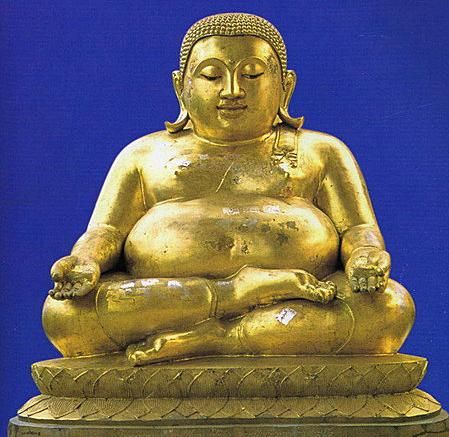I was recently talking with the tipiṭakadhara sayadaw during our morning stroll back to our kuṭis. I have a copy of a word by word cakkhupālattheravatthu pdf and decided to use that for English. The next day, I asked him to tell me the story. He started spitting out a lot of pāḷi all at once. I stopped him and reminded him to speak English. Then I asked him if he knew the whole story in pāḷi and he said “yes”. Then it occurred to me he might have memorized all the stories even though they are not required for his certificate. Yup… When he was a sāmaṇera, he memorized the 2 books plus a few more from the anguttara nikāya. He knows many vinaya and sutta commentaries by heart actually. I’m sure he knows many of the abhidhamma commentaries too, but I forgot to ask.
So What is your favorite story?
I have so many that are my favorite.
However, I recently recommended the following stories to a friend who’s husband recently died:
- The Weaver’s Daughter
- The Elder Nun KisāGotamī
- The Elder Nun Paṭācārā
Have you read the whole set of Buddhist Legends?
There is also a shorter version from BPS. I will include that link below too.
In Theravada countries, like Sri Lanka, these stories are very commonly used in everyday dhamma talks. It was probably the very same reason that these were some of the first larger works ever translated into English. The same is true for jātaka.
https://www.ancient-buddhist-texts.net/English-Texts/Buddhist-Legends/index.htm
4 Likes
My favourite is the Weaver’s Daughter or Kisā Gotamī.
The Story of Tambadāṭhika is also excellent, showing the great skill of Sāriputta in teaching the Dhamma.
The Dhammapada and its Commentary
4 Likes
Yes… a very nice story… It is “retold” very well in complete form, in the smaller book I posted above. Page 40 (on the page and page 49 in pdf)… It is called Coppertooth the Thief-killer
2 Likes
The tipiṭakadhara Sayadaw’s favorite Dhammapada story is:
Book II. Heedfulness, Appamāda Vagga
II. 1. Story-Cycle Of King Udena Or Udayana
Sāmāvatīvatthu (21-23)
https://www.ancient-buddhist-texts.net/English-Texts/Buddhist-Legends/02-01.htm
This is not the first time I read this story, and there are so many interconnected stories, you need to have an incredible memory to follow it all. Nevertheless, there is so much to depth to this story, with so many lessons on kamma, that it is so wonderful to read. Surely a tipiṭakadhara can appreciate a story like this, just like a Harvard Math Professor can appreciate complex math theorems.
2 Likes
183 is the core. But many other stories are equally important; II.Appamadavagga, for example.
Verse 183: Not to do evil, to cultivate merit, to purify one’s mind - this is the Teaching of the Buddhas.
2 Likes
Verse 94: The Arahat whose sense-faculties are calm like horses well-tamed by the charioteer, who is free from pride and cankers - such an arahat is held dear even by the devas.
The Story of Thera Mahakaccayana
While residing at the Pubbarama monastery, the Buddha uttered Verse (94) of this book, with reference to Thera Mahakaccayana.
On a full moon day, which was also the end of the vassa, Sakka with a large company of devas came to pay homage to the Buddha, who was then in residence at Pubbarama, the monastery built by Visakha. At that time, the Buddha was being attended upon by the Chief Disciples and all the senior bhikkhus.
Thera Mahakaccayana, who spent the vassa in Avanti, had not yet arrived, and a seat was kept vacant for him. Sakka paid homage to the Buddha with flowers, incense and perfumes. On seeing a vacant seat he declared how he wished that Thera Mahakaccayana would come so that he could pay obeisance to him also. At that instant Mahakaccayana arrived; Sakka was very pleased and eagerly paid obeisance to him with flowers, incense and perfumes.
The bhikkhus were awed by Sakka paying obeisance to Mahakaccayana, but some bhikkhus thought that Sakka was being partial to Mahakaccayana. To them, the Buddha said, “One who is restrained in his senses is loved by both men and devas.”
The Buddha then uttered the Dhammapada verse as above.

2 Likes
